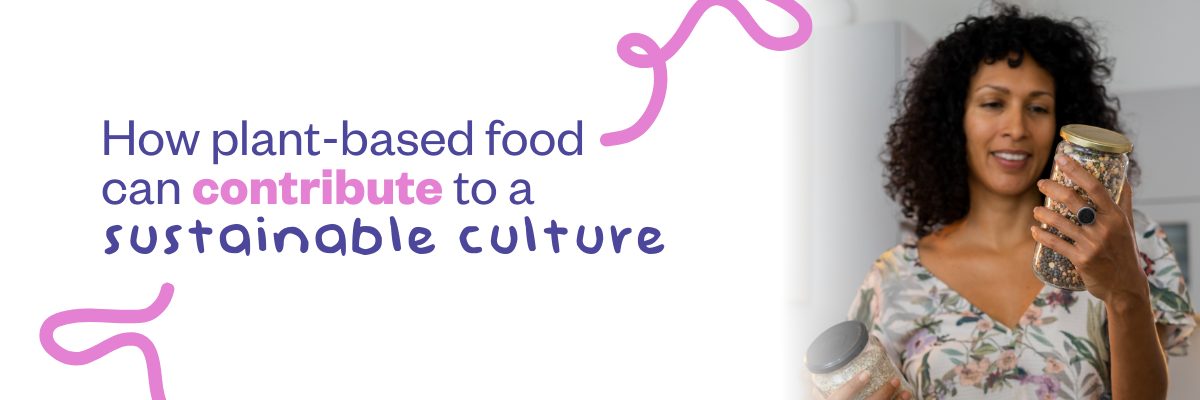The climate crisis is one of the defining challenges of our generation. Rising temperatures, shifting weather patterns, and increasing natural disasters are all symptoms of a rapidly warming planet. But while the problem is global, the solutions can start locally—on our plates.
In Dubai, a city already facing the harsh realities of climate change, the shift toward sustainable dietary habits could become a powerful tool for climate action. In particular, the adoption of plant-based diets offers immense potential to reduce greenhouse gas emissions, conserve water, and create a more sustainable culture.
Climate change in Dubai: what the data shows
Dubai, situated in the heart of the UAE, is no stranger to climate extremes. In recent years, the city has seen record-breaking temperatures, reaching as high as 50°C (122°F). On top of this, in April 2024, Dubai experienced its most intense rainfall in recorded history—receiving nearly a year’s worth of rain in 24 hours (Axios). This catastrophic flooding was attributed, in part, to the increasingly erratic weather patterns driven by climate change.
Additionally, a report by the Atlantic Council warns that sea levels in the Persian Gulf may rise by 0.5 meters by 2050, threatening the UAE’s coastal infrastructure. In a city like Dubai, which has built much of its growth along the waterfront, this is a wake-up call for action.
The global impact of our diets
Globally, the way we produce and consume food accounts for a significant portion of greenhouse gas emissions. The livestock industry alone contributes nearly 15% of all global emissions—more than the entire transportation sector. Moreover, it is one of the leading causes of deforestation, water pollution, and biodiversity loss.
A major study published in Nature Food found that vegan diets could reduce climate-heating emissions, water pollution, and land use by 75% compared to diets rich in animal products. The same study concluded that plant-based eating could also reduce wildlife destruction by two-thirds.
How plant-based diets can help
A plant-based diet emphasizes whole, minimally processed foods such as fruits, vegetables, grains, legumes, nuts, and seeds. Unlike ultra-processed foods, plant-based meals tend to have a lower environmental footprint and higher nutritional value.
According to the United Nations Act Now campaign, reducing meat and dairy consumption is one of the most effective personal actions individuals can take to combat climate change. It’s estimated that switching to a plant-based diet can reduce an individual’s carbon footprint by up to 2.1 tons annually.
A report from the Physicians Committee for Responsible Medicine (PCRM) also highlighted that transitioning to plant-based food systems could reduce global mortality by 10% and greenhouse gas emissions by up to 70% by 2050.
Dubai’s role in promoting sustainable diets
Dubai has committed to ambitious sustainability targets under its UAE Net Zero 2050 strategy. The emirate has made strides in solar energy adoption, sustainable architecture, and waste reduction—but dietary change remains a largely untapped opportunity.
Integrating plant-based food into Dubai’s culinary scene could align with both environmental goals and cultural trends. The city’s booming health and wellness sector, along with an increasing appetite for eco-friendly brands, positions it well for this transition. Restaurants and cloud kitchens offering plant-based menus, like Groove, are already gaining traction in the market.
Groove’s commitment to a plant-based future
Groove is one of the local pioneers leading the way in sustainable food innovation. With a focus on high-protein, plant-based options, Groove is helping redefine what nutritious and eco-conscious eating looks like in Dubai.
By offering dishes made from whole food ingredients that are minimally processed, Groove empowers consumers to make choices that are not only healthier but also better for the planet. Whether it’s their high-protein meals for fitness enthusiasts or everyday options for busy professionals, Groove proves that plant-based eating can be both delicious and impactful.
A cultural shift toward sustainability
Adopting a plant-based diet isn’t about sacrificing flavor or tradition—it’s about evolving our habits to match the reality of our environment. By making plant-based foods more accessible and appealing, we can slowly shift cultural norms and make sustainable eating a shared value.
Education campaigns, public health initiatives, and corporate responsibility all have a role to play. Even small actions—like adding one plant-based meal a day or observing meat-free Mondays—can have significant cumulative effects.
Conclusion
The climate crisis demands urgent and innovative solutions. While policy reforms and clean energy investments are crucial, so too are the choices we make every day. In Dubai and around the world, shifting toward plant-based food can reduce environmental harm, conserve natural resources, and help build a sustainable culture.
Whether you’re motivated by the environment, personal health, or future generations, now is the time to reconsider what’s on your plate. With companies like Groove making plant-based eating easier and tastier than ever, there’s never been a better time to start.


